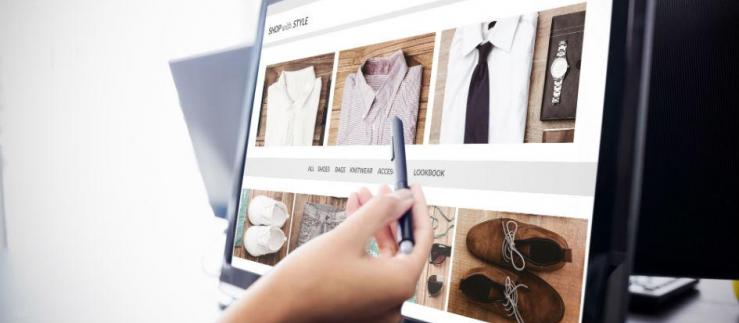Ms Berlinger Schwyter, you're CEO of Berlinger + Co, a company that's gone through some interesting changes. Berlinger started out manufacturing textiles; now your company is a worldwide specialist in doping test systems, electronics and software products. At the 2017 Forum for Swiss Foreign Trade, S-GE is focusing on the topic of "Rethinking business models: The international competitive advantage of the future," and we would like to present Swiss businesses that demonstrate the possibilities of innovative business models.
What led your company to change its business model? From a textiles company to a provider of software, temperature control systems and doping tests.
This development started when we were re-winding bands of tape for 3M. At that time, we specialized in tape and ribbon cutting, so 3M contracted us to transfer their double-sided tapes from large to small rolls and to distribute them throughout Europe. Our contact at 3M had previously worked in the industrial sector, and through him we got in contact with people in the field of temperature measurement.
So, it was a series of happy coincidences that gradually led us to shift our business areas. Of course, we were also facing a certain predicament at the time as well. It had become clear that we had to make a break with our past in textiles if we wanted to survive. We couldn't really predict what opportunities might come out of doing that. The fact that we were able to seize on the opportunities that arose was largely thanks to my father's risk-friendly entrepreneurial spirit. We really did manage to change our whole business around – with top-rate teamwork and a lot of pioneering. There were a few bumps in our learning process as well.
One very relevant development for Berlinger came in 2014 when we acquired a software company. In the temperature monitoring area, there was a growing demand for the ability to administer and process the data that our devices deliver. We started out by forming a partnership with a software company. In order to develop the software we needed, we had to provide the company with a lot of proprietary knowledge, and in order to protect that knowledge we ended up buying the company.
If you had to describe your business model in one sentence, what would you say?
First and foremost, we offer our customers security. We offer highly secure seals for doing urine and blood tests on athletes, and we offer electronic data recording devices that reliably monitor the temperature of sensitive goods during transportation and storage.
What role did exporting play in transforming your business model and how will Berlinger change its approach to exporting in the future?
Exporting in itself didn't contribute to the transformation. However, as we transformed our services and products, our export activities began to grow. I should mention that we were doing a lot of exporting 150 years ago. We shipped large quantities of fine jacquard fabrics to India. Then came almost 100 years of concentrating primarily on the Swiss market, which was caused by a fire at the weaving mill that made exporting textiles impossible. Now, we are once again exporting 90 to 95% of our products. We are active around the world.
What role do partnerships play for Berlinger?
Depending on the circumstances, SMEs might not be able to do everything they need to do within their own company. It's therefore important to maintain a stable network. If any problems come up, the company can fall back on this network. Strategic partnerships can be attractive. As for us, we haven't always had so much luck when it's come to market development. However, if you're talking about partnerships with suppliers, customers, local authorities etc. then, indeed, those are the networks that a company has to build and maintain with a mind to fairness and sustainability. Sustainable success is generally only achievable through a broad network of reliable partners. However, there is no magic formula for tackling an export market. The strategy has to be adapted according to the respective market. SMEs always need distributors, because a small company can't manage to have representation everywhere. The model of working with distributors is also quite practical and resource-friendly for SMEs.
We developa list of criteria for new partnerships, and we do assessments – it's similar to the process of recruiting personnel. When we get customer requests from countries where we are not yet represented, we often ask the customer directly what distributor they would like to work with. This has worked very well so far.
SMEs are constantly developing innovations in their products and services, due to the strong Swiss franc and other reasons. Companies also have to innovate on the strategic level, in their corporate management. What techniques and strategies do you use to ensure successful innovation?
We try to develop strong, future-oriented strategies with a sensible combination of external consultants who have core competencies in a variety of areas, and we supplement that with our own expertise. This is a constant challenge in times like these, where you have to keep up with rapid changes as well as many new trends and technologies.
Innovating an entirely new business model is no easy task. Many companies may not have enough creativity or vision. Based on your own experience, what approach would you recommend to other SMEs that are looking for a new business model?
Well, I don't think there's any kind of magic formula. Keeping your ears open, truly focusing and daring to try new things. Finding the right balance is often not a matter of rational considerations alone. It's often simply "luck" that puts you in the right place at the right time. However, getting luck on your side, so to speak, has a lot to do with evaluations, studies and hard work.
2017 Exporter Demain "Rethinking business models"
You can find more on this topic in our dossier and in our monthly newsletter (sign up here).
At the Exporter Demain, the 28 September in Lausanne you will also have the opportunity to engage with many other Swiss SMEs and to get inspiration from trailblazers like HollyStar or Ifolor. Go to the program and registration page!





